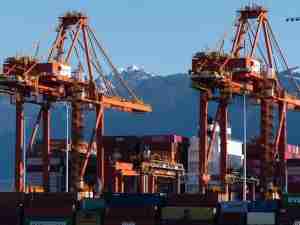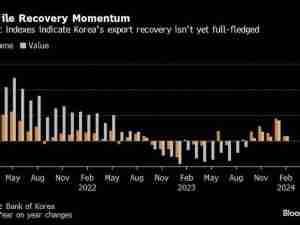The UK isn’t seeking a Swiss-style relationship with the European Union, Rishi Sunak’s government said, pushing back against a Sunday Times report that his administration is exploring an option that would anger many in his party.
The paper said senior government figures plan to put Britain on a pathway to closer economic ties with the bloc akin to those enjoyed by Switzerland, over the next decade. That sparked a backlash from Brexiteers, with former cabinet minister Simon Clarke saying on Twitter that he hoped that wasn’t under consideration, and former UK Independence Party Leader Nigel Farage saying “this level of betrayal will never be forgiven.”
Switzerland is a member of the European Free Trade Association, which, thanks to about 120 bilateral accords, participates in the single market for most goods. But it also has to accept free movement of labor, EU market regulations and makes annual payments to the bloc’s budget -- all of which are red lines to hardline Brexiteers on the right of Sunak’s Conservative Party.
Trade Hit
The push-back shows the bind Sunak is in as he and Jeremy Hunt seek to boost the UK’s economy, which the Chancellor of the Exchequer said last week is already in a recession that’s predicted to last through 2023. The government’s fiscal watchdog, the Office for Budget Responsibility, estimates Brexit will lower Britain’s trade intensity by 15% over the longer term, despite the promises of those who campaigned for the divorce that it would allow the country to become a buccaneering, free trading nation.
Instead, British businesses trading with Europe have faced extra red tape. Meanwhile the UK is still in a standoff with the bloc over trading arrangements between Northern Ireland -- which still follows EU rules -- and Great Britain. While a Swiss-style deal would ease those tensions, the UK government issued a statement on Sunday calling the Times report “categorically untrue.”
“This government is focused on using our Brexit freedoms to create opportunities that drive growth and strengthen our economy,” according to the statement.
Meanwhile, Health Secretary Steve Barclay, a former Brexit secretary, told BBC TV on Sunday that a Swiss-style deal isn’t on the cards “and I certainly don’t recognize that story.”
Mending Fences
Nevertheless, there are signs Sunak’s administration is trying to repair the fractious relationship with the EU that prevailed under former Prime Ministers Boris Johnson, who negotiated the Brexit deal, and Liz Truss, who promoted legislation to unilaterally break with the so-called Northern Ireland Protocol governing the region’s trade.
The European Commission told members last week that relations with London have improved under Sunak, though that hasn’t yet translated into concrete changes in UK positions on Northern Ireland.
“Having unfettered trade with our neighbors and countries all over the world is very beneficial to growth,” Hunt told BBC Radio on Friday, adding that in the years ahead, the UK will be “able to remove the vast majority of the trade barriers that exist between us and the EU” while remaining outside the Single Market.
“Brexit means we will never again have to accept a relationship with Europe that would see a return to freedom of movement, unnecessary payments to the European Union or jeopardize the full benefit of trade deals we are now able to strike around the world,” the government said in its statement.
Businesses Unimpressed
Hunt on Thursday unveiled a £55 billion ($65 billion) package of tax rises and spending cuts as he sought to restore the confidence of markets in the economy two months after Truss’s disastrous £45 billion of unfunded tax cuts.
But Tony Danker, Director-General of the Confederation of British Industry, the country’s biggest business lobby, told the BBC that the chancellor will need to come back with more measures to stimulate growth.
“There was really nothing there that tells us the economy is going to avoid another decade of low productivity and low growth,” Danker said. “Jeremy Hunt did some things which will be very welcome, but he also made businesses and everybody pay more taxes, and so the fear is that there just wasn’t enough there to turn around and say we can grow again.”
Sunak will have the opportunity to address some of the concerns of business on Monday morning, when he’s due to address the CBI’s annual conference in Birmingham. His speech is slated to discuss the topic of “innovation,” according to his office.








